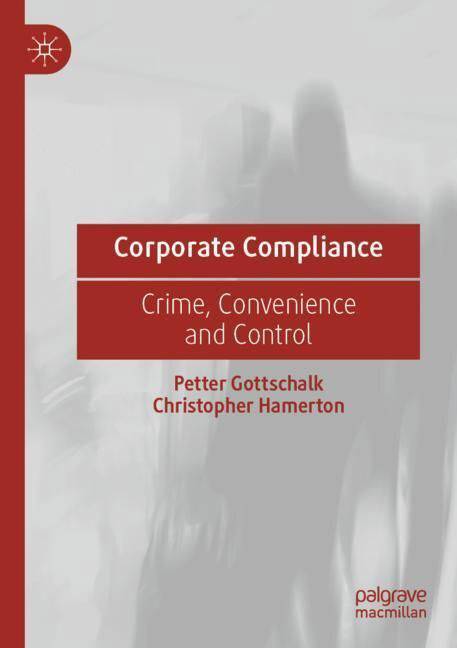
Bedankt voor het vertrouwen het afgelopen jaar! Om jou te bedanken bieden we GRATIS verzending (in België) aan op alles gedurende de hele maand januari.
- Afhalen na 1 uur in een winkel met voorraad
- In januari gratis thuislevering in België
- Ruim aanbod met 7 miljoen producten
Bedankt voor het vertrouwen het afgelopen jaar! Om jou te bedanken bieden we GRATIS verzending (in België) aan op alles gedurende de hele maand januari.
- Afhalen na 1 uur in een winkel met voorraad
- In januari gratis thuislevering in België
- Ruim aanbod met 7 miljoen producten
Zoeken
Corporate Compliance
Crime, Convenience and Control
Petter Gottschalk, Christopher Hamerton
Paperback | Engels
€ 213,95
+ 427 punten
Uitvoering
Omschrijving
Compliance has long been identified by scholars of white-collar crime as a key strategic control device in the regulation of corporations and complex organisations. Nevertheless, this essential process has been largely ignored within criminology as a specific subject for close scrutiny - Corporate Compliance: Crime, Convenience and Control seeks to address this anomaly. This initiating book applies the theory of convenience to provide criminological insight into the enduring self-regulatory phenomenon of corporate compliance. Convenience theory suggests that compliance is challenged when the corporation has a strong financial motive for illegitimate profits, ample organisational opportunities to commit and conceal wrongdoing, and executive willingness for deviant behaviour. Focusing on white-collar deviance and crime within corporations, the book argues that lack of compliance is recurrently a matter of deviant behaviour by senior executives within organisations who abuse their privileged positions to commission, commit and conceal financial crime.
Specificaties
Betrokkenen
- Auteur(s):
- Uitgeverij:
Inhoud
- Aantal bladzijden:
- 378
- Taal:
- Engels
Eigenschappen
- Productcode (EAN):
- 9783031161254
- Verschijningsdatum:
- 2/11/2023
- Uitvoering:
- Paperback
- Formaat:
- Trade paperback (VS)
- Afmetingen:
- 148 mm x 210 mm
- Gewicht:
- 512 g

Alleen bij Standaard Boekhandel
+ 427 punten op je klantenkaart van Standaard Boekhandel
Beoordelingen
We publiceren alleen reviews die voldoen aan de voorwaarden voor reviews. Bekijk onze voorwaarden voor reviews.









